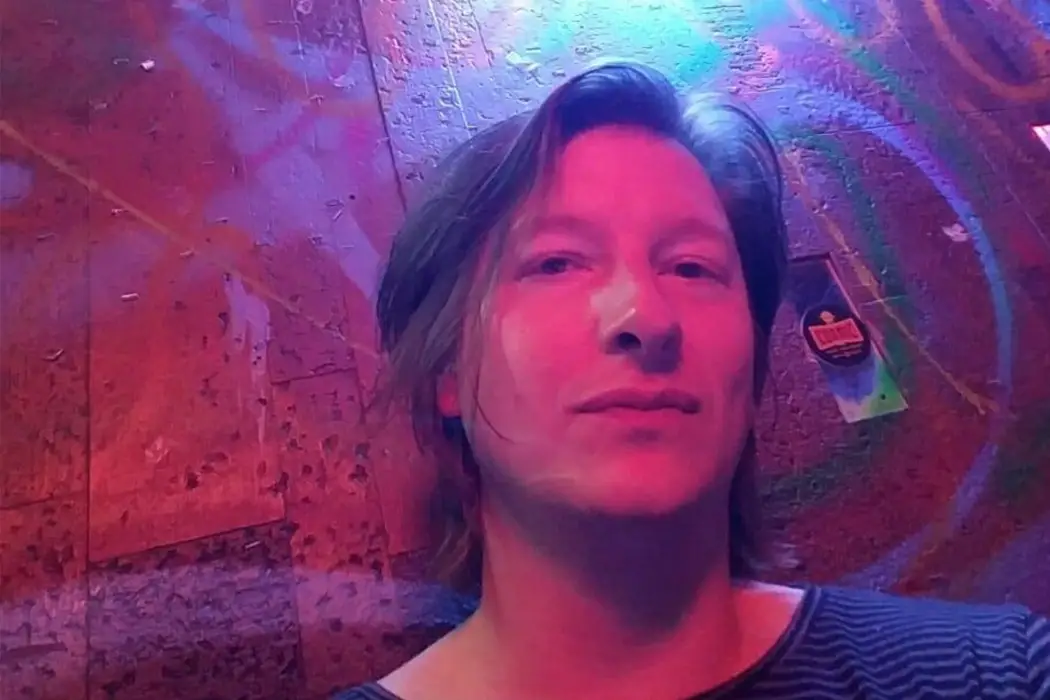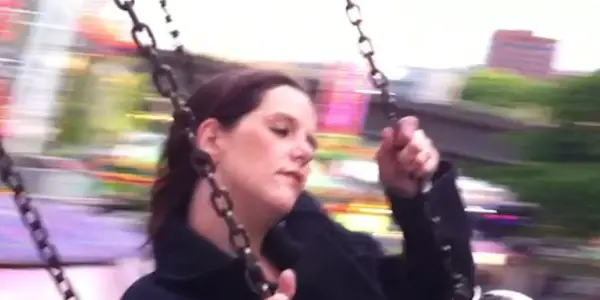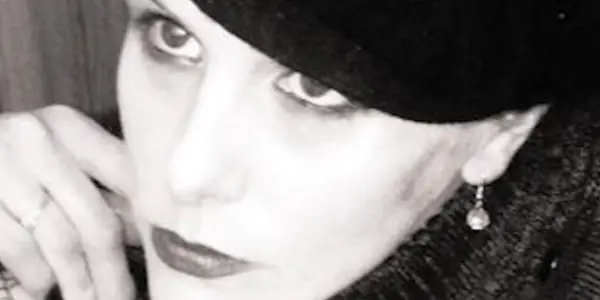Randall White Talks About Making A Documentary About Mental Illness

Jacqui Blue has a lifetime background in theater and writing.…
In the last few years shows like 13 Reasons Why and Sharp Objects and films like To Write Love On Her Arms (there’s also a book and non-profit attached to this film that stars Kat Dennings) have started to shine a light on teen suicide, self harm and mental illness. There’s still a lot of taboo surrounding these subjects and the surface is only just beginning to be scratched.
Conversations are slowly starting to happen around these topics thanks to the mainstream media shining a small light on these relevant and prevalent social issues affecting hundreds of millions of people around the world. We need that light to get bigger and see more conversations spur on these topics if we are ever going to see real change ripple through our world, for the betterment of our species and societies.
Randall White is a first time filmmaker contributing to these conversations. He just completed his first feature film, A Fine Wife – a documentary that he made chronicling his thirteen year whirlwind relationship with the love of his life, who died by suicide from her mental illness. His wife, Michelle White, had gone most of her life with an undiagnosed mental illness even though mental illness ran in the family with one grandmother being schizophrenic and the other was bipolar. Michelle’s mother died by suicide and a few years later Michelle herself completed suicide. Randall also lost his brother and a bandmate to suicide.
He lost many people he loved to suicide and after going through the rollercoaster of mental illness with the woman he considers to be his one true soulmate, he decided to take the footage he had amassed over the years and compiled it together to tell their story; the story of how bipolar disorder wrecked their lives. This film has a raw feel to it because it is raw. It’s real life and gives us a sneak peek behind the closed doors inside someone’s real life with a mental illness; the ups, the downs and the waves of stability that visit in between the bouts of extreme chaos.
A Fine Wife tells the story of Randall and Michelle White. We follow their journey of love into a wild ride of crazy that ensues over the years until it becomes completely out of control and ends with addiction, suicide and cheats a beautiful couple out of growing old together.

I couldn’t get their story out of my head days after watching the director’s cut of A Fine Wife. I have known people like these people, with these same issues and struggles and I immediately understood how important it was to get this story out. Bipolar disorder affects millions of Americans and this film will also help people recognize the signs of mania and depression, as Randall explains what bipolar disorder is in layman’s terms as it relates to his research and experience. One of his frustrations with the system was that his wife had been in and out of therapy for years and no one properly diagnosed her until just a few months before she took her life.
Documentary films are often times conversation starters and Randall’s film is no exception. In fact, he’s hoping that his film will reach millions of people across the planet and get a few different conversations going after watching his film. It’s time for our global societies to talk about mental health and how mental illness not only affects sufferers but their spouses, children, extended family and even friends. It’s time to break the stigma and help people get the help they need by letting them know it’s okay to not be okay.
Randall White took a tragic situation that he and his daughter had to live through and found a light in the darkness by sharing Michelle’s story in the hopes of helping others. In life Michelle was a nurse and saved countless lives, through this film, Randall is helping her continue to reach people in need and hopefully save a few more lives.

Jacqui Blue for Film Inquiry: When it comes to editing together a story as intimate, raw and taken from real life like this, surely some parts must have been more upsetting or emotionally triggering to rewatch/relive; was it hard for you to decide what to include and which parts to leave out?
Randall White: I worked forwards and backwards to make the film. First, I went through and digitized all the footage I had from photos and tapes (yes, TAPES, remember those?). Then I categorized “Chapters”, and sections such as when we met, her family, my family, etc. Then as I started to piece things together the narrative kind of just flowed as I wrote the story, then turned it into a script I could read and record as audio. I then built in the videos and photos to the audio narrative. There are self-created animations as well as stock footage. I used Google’s free music library to score the film along with my original music – I highly recommend the YouTube Creator’s sound library.
And yes, it was difficult when I ran into the more emotional, burning memories. To relive it over and over was frustrating enough, but when your software won’t render right or files go missing or all the nuances of technical bullshit- it got overwhelming at times and I was drinking heavily at points to help get through. I still have my vices like everyone else.
When you talk to Michelle in the film and about Michelle and bipolar disorder in your narrative, you sound like someone who truly cared about the well being of his partner as well as someone who had done some homework on this mental illness to better understand your wife, how much research did you do on the subject? Your film is impactful and speaks on a very relatable level, showing real life moments. So, did understanding what was going on with her on your end, help you when it came to communicating with Michelle?
Randall White: We learned the hard way. Michelle finally admitted that addiction was more in control than her in the end, but she never gave me the chance to work with that. Even with all the hurt she threw my way, I will never stop loving her… this film was my way to say that to her.
I watched other documentaries on bipolar disorder and researched the web and with bipolar groups on Facebook, Meetup, etc. to ask questions. The answers I got all kind of mish-mashed into the generalizations I include in the film, with my advice to go keep learning. “A Fine Wife” is a beginner’s “Crash Course”. I knew Michelle went back and forth between depression and mania, I just never knew it had a medical definition as a disease or affliction. It was after her death that I was able to put together some pieces such as her medical diagnosis from when we were apart. But we both knew she was mentally ill and on a path of destruction, and I constantly tried to let her know I was in her corner, no matter what.
At what point did you decide to make such a personal film? Was this an idea you had when Michelle was still alive? What really fueled you and made you say “Okay, I’m doing this!”?
Randall White: I knew it was a crazy tale even when she was alive, and I told her I was going to end up making a film about her/us/WTF, because it was wild true love gone bonkers.
There’s a conversation in the car, where Michelle seems to be pretty erratic, turning up the volume despite Charlotte’s pleas for her to stop yelling, what was going on that led up to this behavior from her?
Randall White: She had been drinking and impulsively decided I should drop her off at a hotel so she could have “her time”. I told her I wasn’t going to do that and it triggered her verbal assault.
Towards the end, when Michelle was officially diagnosed and knew she was bipolar, was she open about talking about with other people? Was she aware of her own behaviors and what she was doing? (Example that comes to mind is when in the film, you two have a conversation about her just walking into the neighbors house…)
Randall White: She was being blocked from seeing Charlotte and I told her without a professional evaluation it wasn’t going to happen, so she finally went into a specialized clinic where they finally diagnosed her during mania.
What conversations would you like to see started after people watch your film?
Randall White: The top conversations coming to mind:
– How to get people with bipolar disorder to better handle their afflictions, and family / friends / society better understanding what they are contending with. Social stigmas going away based around real life “behind closed doors” living, as you put it. So many variables to explore there. Americans do not live like Beaver Cleaver, never truly have. The national decriminalization of marijuana, and the benefits it is providing to states who have adopted and adapted to it, and how to commute sentences for prior offenders. Mental illness impacts on children and how to better protect them without too much intrusion / interference from the government. How to carry on and still live a happy life after major trauma(s).

What lessons did you learn through this whole process that you feel are universal lessons that we can all learn from?
Randall White: Not to steal Buddha’s thunder, but “Life is full of suffering”. Take that notion, accept it, and reverse engineer it to better handle life’s hits. To me it’s the hub that everything else comes back to.
How did you grow as a person after going through experiences like this?
Randall White: I am still trying to. My focus is to be the best father I can be, as I began. Now I just have to do it alone, and my art / music will just have to take a back seat. I’ve learned better financial responsibility as a part of this – making sure bills are paid on time so I can reduce debts and not fall behind. That requires sacrifice of consumer pleasures and I’m fine with that. I would rather live minimally these days and eliminate attachment to “things”. But if someone with a boat or an exotic car wants to take me for a spin, I’m in.
In A Fine Wife, you also talked about a movie you wanted to write, called Winners? Did you ever start (or finish) that?
Randall White: ”Winners” is a comedy I started and intend to finish one day. I have many scenes written, and they make me laugh, so hopefully they’ll bring joy to others when it’s complete.
Who is your specific target market for this film; who should see it and why?
Randall White: I think people who generally like documentaries find a wide variety of subjects they will watch, so starting there. People who like dramas, true stories, have been impacted by mental illness, those who work in healthcare, and perhaps people who like horror films. Those are my starting go-to audiences!
We would like to thank Randall White for taking the time to talk with us.
A Fine Wife is currently being submitted to film festivals but a pre-release director’s cut is available here.
Does content like this matter to you?
Become a Member and support film journalism. Unlock access to all of Film Inquiry`s great articles. Join a community of like-minded readers who are passionate about cinema - get access to our private members Network, give back to independent filmmakers, and more.
Jacqui Blue has a lifetime background in theater and writing. After achieving international acclaim with her first film Beautiful Births, she was one of 10 Directors selected by James Franco for his Master Class, "Sex Scenes". She went on to work with Jared Padalecki & T.O.N.E-z in her suicide awareness documentary, I Chose Life: Stories of Suicide & Survival and appears on-screen next to Lou Diamond Phillips in The Last Train. www.jacquiblue.net













